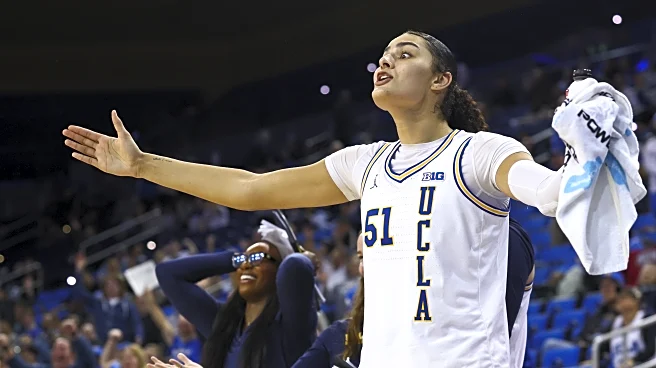What's Happening?
Ohio State University is set to deactivate eight academic programs as part of its compliance with Ohio's higher education reform bill, known as the Advance Ohio Higher Education Act. This legislation mandates the elimination of programs that graduate
fewer than five students on average over three years. The affected programs include integrated mathematics and English, medieval and renaissance studies, music theory, musicology, biochemical sciences, landscape horticulture, and two sustainable agriculture programs. Additionally, Ohio State plans to merge several low-enrollment programs into existing majors, such as combining French and Italian studies into a single major, and integrating ancient history and classics with modern Greek into the classics major. The university has requested waivers for about a dozen programs to continue for up to two years, although these have not yet been approved by the state.
Why It's Important?
The decision to end and merge academic programs at Ohio State University reflects broader trends in higher education where institutions are pressured to optimize resources and focus on programs with higher enrollment. This move is significant as it aligns with state efforts to ensure educational offerings are economically viable and meet student demand. The reform bill aims to streamline educational programs, potentially affecting faculty positions and student choices. Current students in the affected programs will be allowed to complete their degrees, but future students may have fewer options. This restructuring could influence the university's academic diversity and its ability to attract a wide range of students.
What's Next?
Ohio State University will continue to work with its academic leadership to explore options for restructuring or realigning programs that fall under the provisions of the reform bill. The university plans to create a process for annual reviews of degree enrollments to ensure compliance with state requirements. The state has yet to approve the proposed mergers and waivers, which could impact the university's future academic offerings. Stakeholders, including faculty and students, may need to adapt to these changes, and the university will likely engage in discussions to address concerns and ensure a smooth transition.















